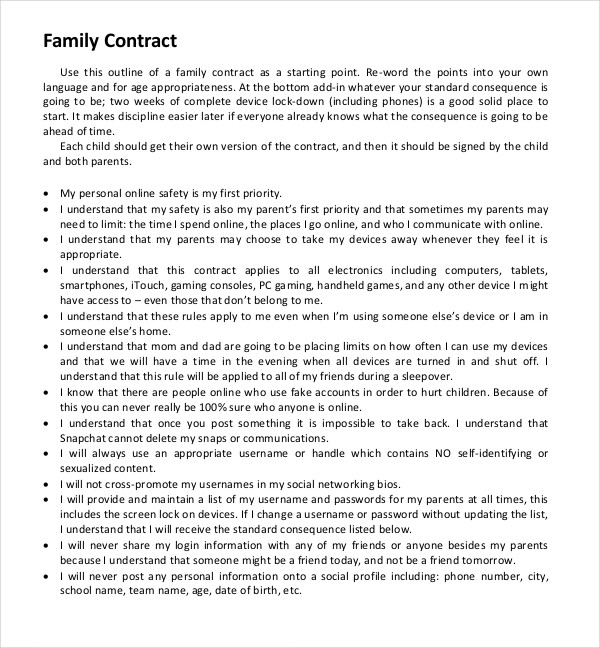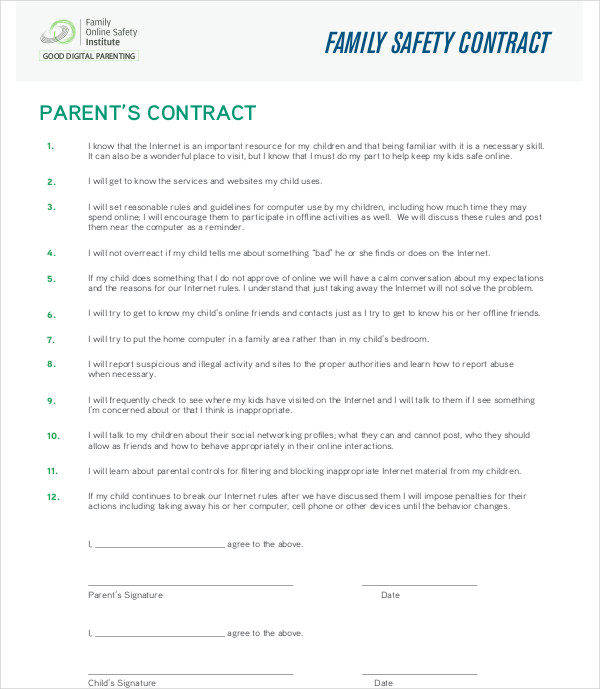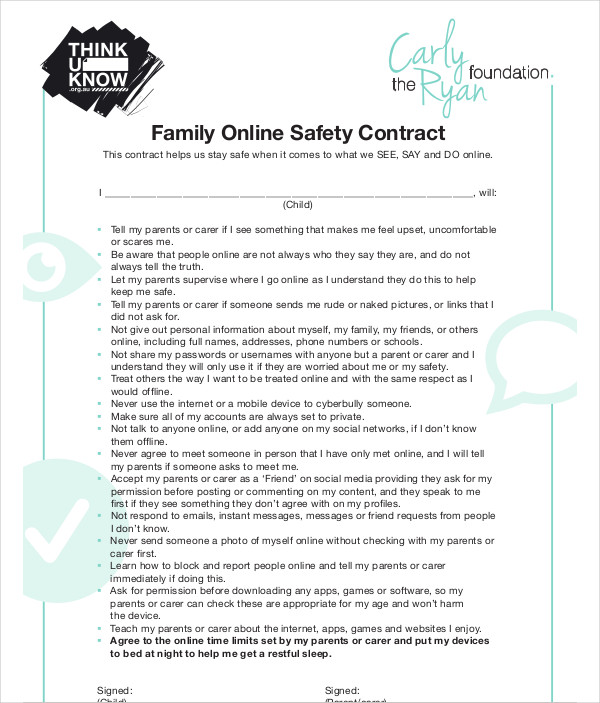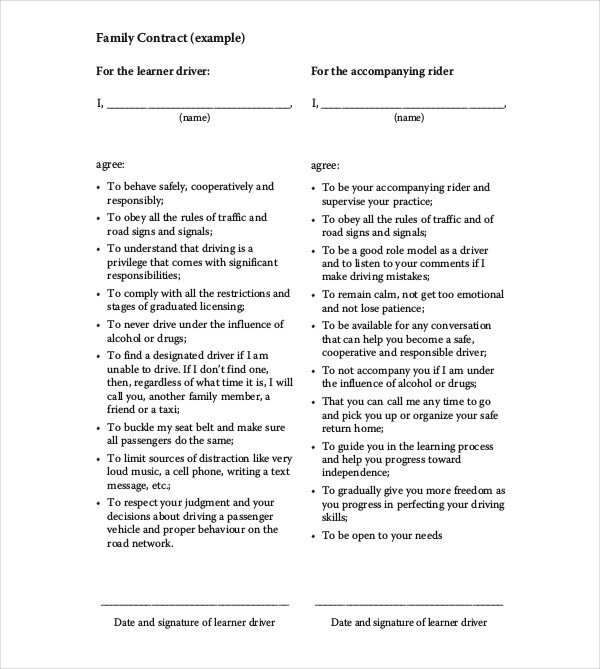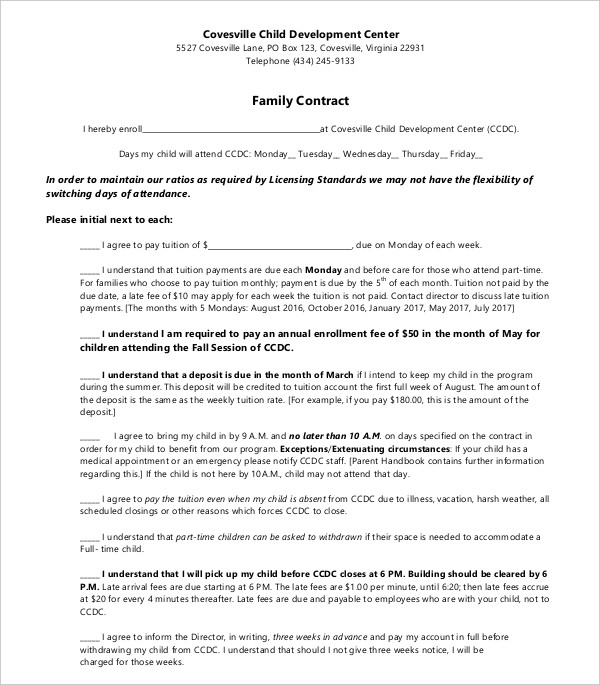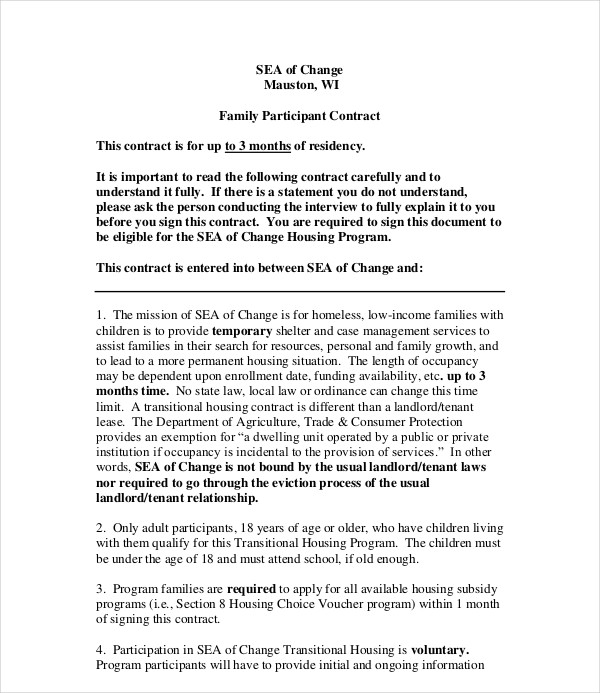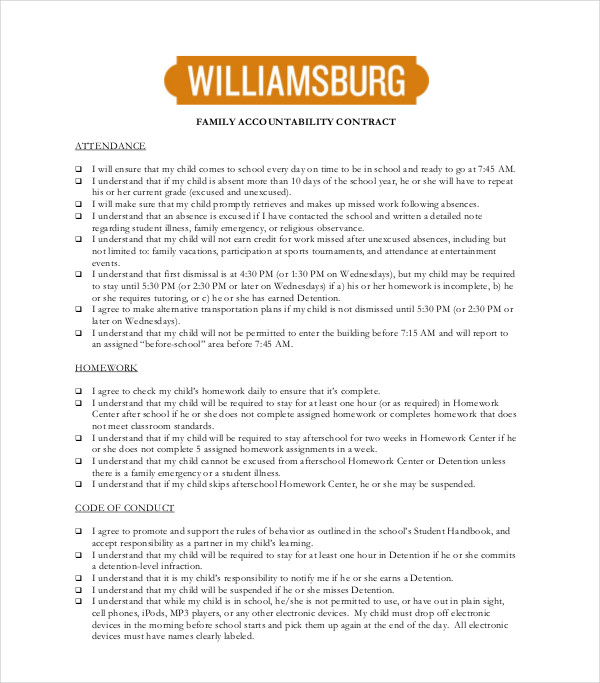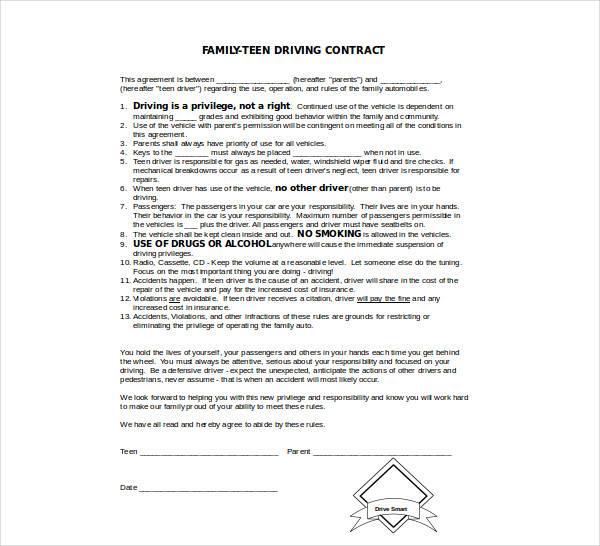9+ Family Contract Examples to Download
Have you ever thought of getting contracts between you and your children? You must be thinking why on earth would you do that but actually this exists. There is a term named Family contract which is like any other general contract between parents and children that outlines particular expectations and moreover tasks to be completed. It also includes the consequences for failing against those responsibilities. There are lots of restrictions on kids but now the kids have the power to get their parent’s permission over anything by having the mutual consent of both over that specific thing.
Family Contract Example
Family Safety Contract
Family Online Safety Contract
Types of Family Contracts
Contracts give the right to both the parents as well as children to agree upon something. Some of the contracts are also get drawn between husband and wife. Different kinds of family contracts are listed below. Go through them to get the idea of unfamiliar contracts.
1. Parent’s Contract
The foremost family contracts comes up with the parent’s contract in which the parents list out the activities which they allow their children to involve in such as which websites they will use, reasonable guidelines for their children using the computer. You may also see yearly contract
2. Family Online Safety Contract
This is merely the children contract. This kind of contracts helps the children stay safe when it comes to what we see, say and do online. In these contracts, the children do things such as allowing their parents to supervise where they go online etc. This also includes project contract as well as a work contracts.
3. Family Planning Contracts
This kind of contracts usually drawn between husband and find in order to plan the family. Obviously such kind of contracts been signed over the mutual understanding and deep analogy. This is among the rarest contracts. There are hardly any couples who ever drawn such contract.
Family Contract Sample
Our Family Technology Contract
Printable Family Contract
Student-Host Family Contract
Family Participant Contract
Family Accountability Contract
Family Teen Driving Contract
Why use such contract?
When you simply want to appear non argumentative to your children, you go with the contracts. The contracts simply help to allow the children input how they want to complete their tasks and manage their responsibilities. The question arises, how you can create such contract? Well, there is nothing more you need to do, just call a family meeting. Explain that you are interested in creating systems and routines and just draw them an idea of creating contracts. Categories will vary from family to family.
As the parents, you can set parameters of the contracts but keep this in mind that you let your children make the choices. Clearly outline expectations such as if you complete your homework timely then you will allow using the computer and many such norms like that. Always be more specific you can. Also give them acceptance, affirmation, and appreciation for their successes. Create a family contract and get the way of working together. Let your children be more frivolous so that you can spend these years of school with the children and let them enjoy this new feeling with you. Know what payment contract.



